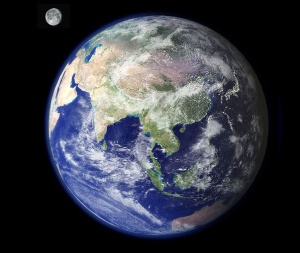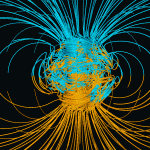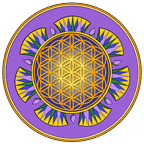By Tristan Anderson
From integral-health.com
The Gaia Hypothesis describes the self-regulatory ability of the Earth through its living organisms and inorganic material. Extensive scientific research has verified that the Earth’s biosphere is modulated in such a way to continually maintain and support the life within it.
 Although the term Gaia originally carried a gender association, the modern term need not. In fact, myself and countless others believe that it is time for a non-gender specific notion of the living Earth. I honor those who continue to connect to the Earth as a Mother or Goddess, however, I do see the potential for some men to feel isolated from the Earth due to such a notion. It seems imperative that men reclaim a deep sense of belonging and connection to the Earth. Through the Gaia Hypothesis that relationship may perhaps be easier.
Although the term Gaia originally carried a gender association, the modern term need not. In fact, myself and countless others believe that it is time for a non-gender specific notion of the living Earth. I honor those who continue to connect to the Earth as a Mother or Goddess, however, I do see the potential for some men to feel isolated from the Earth due to such a notion. It seems imperative that men reclaim a deep sense of belonging and connection to the Earth. Through the Gaia Hypothesis that relationship may perhaps be easier.
Also included in this Gaia Theory, which is really a deepening of the ancient Greek and many of the indigenous perspectives, is the awareness that humans are intimately connected with the total Earth system that is itself alive, conscious, and with “purpose.” This “purpose” has been thoroughly outlined by world renowned climate scientist James Lovelock in his Gaia Theory and is the maintenance of surface life through the regulation of certain factors such as temperature, chemical composition of the atmosphere, the axis spin rate and the mineral composition of the ocean. If the delicate balance of these and other factors are not maintained, life could never have survived for this long: almost four billion years!
 Lovelock believes that the conditions necessary for life to flourish are not inherently stable, and were it not for some regulating force these conditions would have broken down. To account for this he proposed that the Earth acts like a giant living organism that strives for homeostasis, just like humans and other animals. This exciting new idea is backed by fascinating scientific data.
Lovelock believes that the conditions necessary for life to flourish are not inherently stable, and were it not for some regulating force these conditions would have broken down. To account for this he proposed that the Earth acts like a giant living organism that strives for homeostasis, just like humans and other animals. This exciting new idea is backed by fascinating scientific data.
Humans in this new understanding can be thought of as cells within a larger planetary body rather than separate and isolated wholes. The Gaia Hypothesis helps us realize that what we do to the Earth we also do to ourselves and what we do to ourselves has consequences for the whole Earth because there is no separation. Just as one harmful cell in a human body has the potential to alter the whole body, so too can one human affect the entire planet. What we do does matter!
My sincere hope is that humans will embrace their interconnectedness with the living Earth and align with the drive for homeostasis rather than fight against it. By doing so we honor the health of all beings and the sacred mystery of life.


